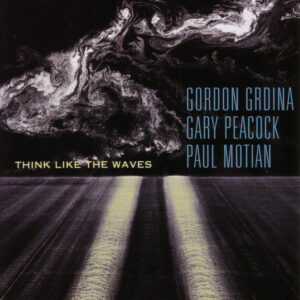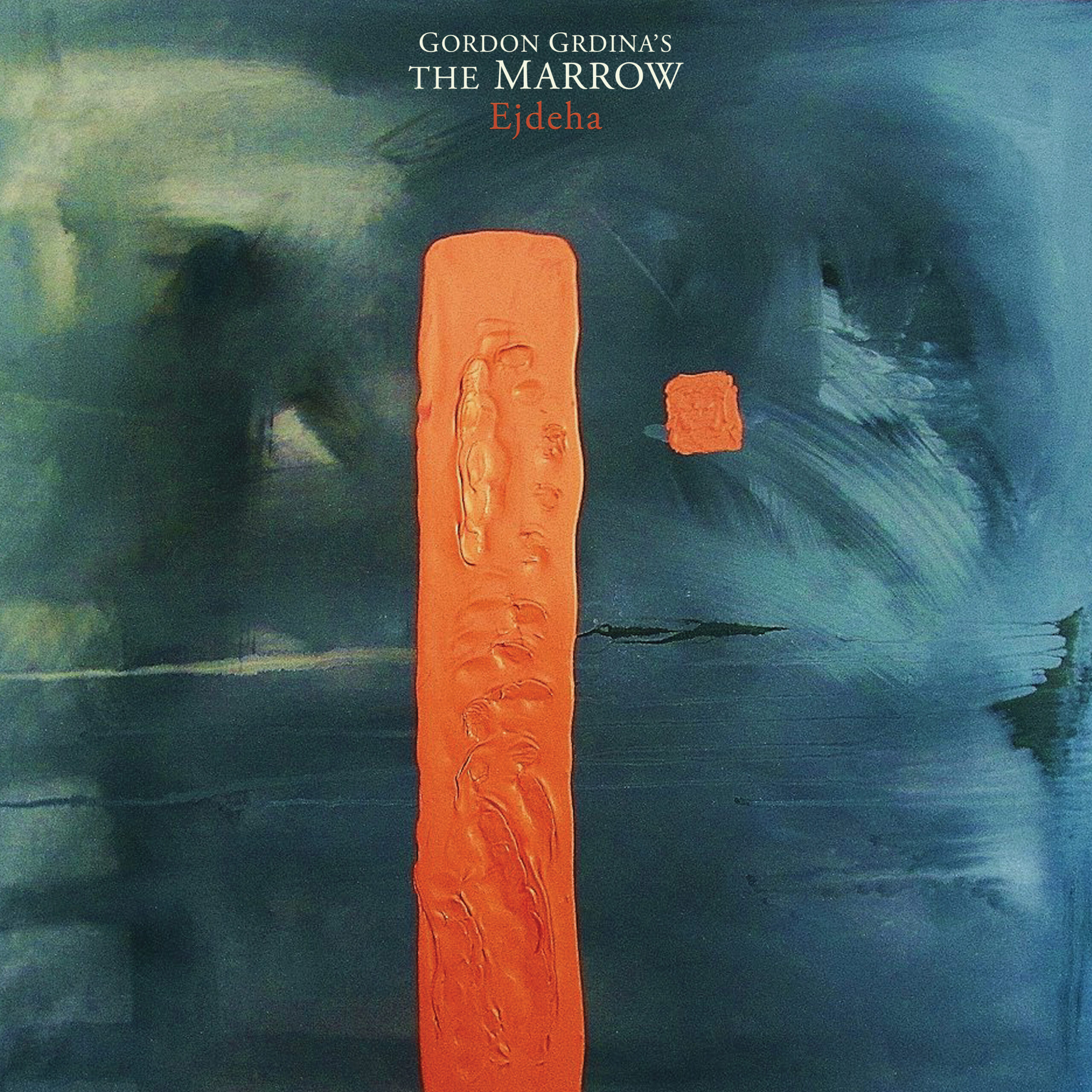-
Product on saleGordon Grdina Jazz Bundle – Vol. 1 [DSD Bundle]Original price was: €58,97 – €96,47.€47,17 – €77,17Current price is: €47,17 – €77,17.
Save 20% on all three Gordon Grdina albums with the DSD Bundle
The Art of the Oud
For more than two decades, Vancouver-based guitarist and bandleader Gordon Grdina has been composing music that features the oud. The oud is a double-coursed string instrument with a bowl-shaped back that is prominent in Arabic and Persian musical cultures, and is the historical precursor to the European lute. The short-necked instrument is typically strung with a single bass string and five double-string courses. Its ancient history is shrouded in myth, but the oud is believed to have been introduced to Europe in the 8th century.
The Arabic music system maqam, which translates as ‘place’ or ‘location’, has a centuries-long history of development and a level of complexity that demands high technical and intuitive skills of its virtuoso players. Maqam modes incorporate quarter tones that can sound to the Western ear like “bent” notes in jazz and blues playing.
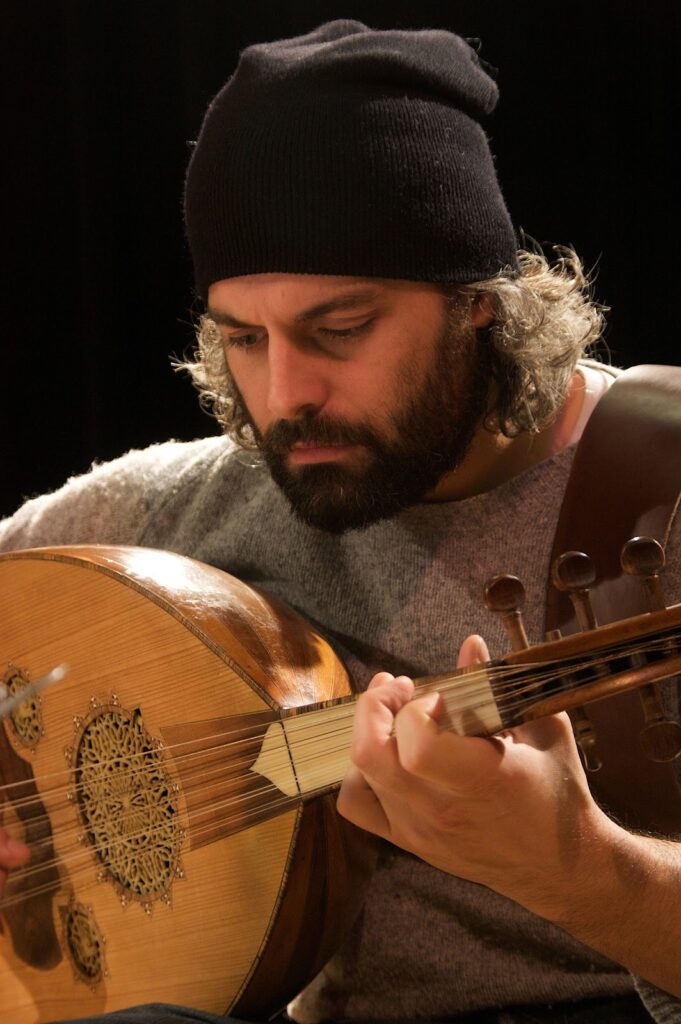
Gordon Grdina has been playing oud since his teens. The art of the oud is transmitted from master to student, along a path of innovation, adaptation and variation based on regional and ethnic musical traditions. Oud players have deep respect for tradition and a desire to carry older practices into newer forms of expression. It is not surprising that Grdina has pursued a similar course.
-
Think Like the Waves€20,99 – €34,49
Think Like the Waves
The oud is featured on Grdina’s 2006 Songlines debut, “Think Like the Waves”, a trio with bassist Gary Peacock and percussionist Paul Motian. Grdina was mentored by Peacock, the calm center of the Keith Jarrett “Standards” trio, over a period of five years. Working with a musician who had played alongside Jarrett, Bill Evans, and Paul Bley, connected Grdina to the lineage of an earlier generation of modernist innovators.
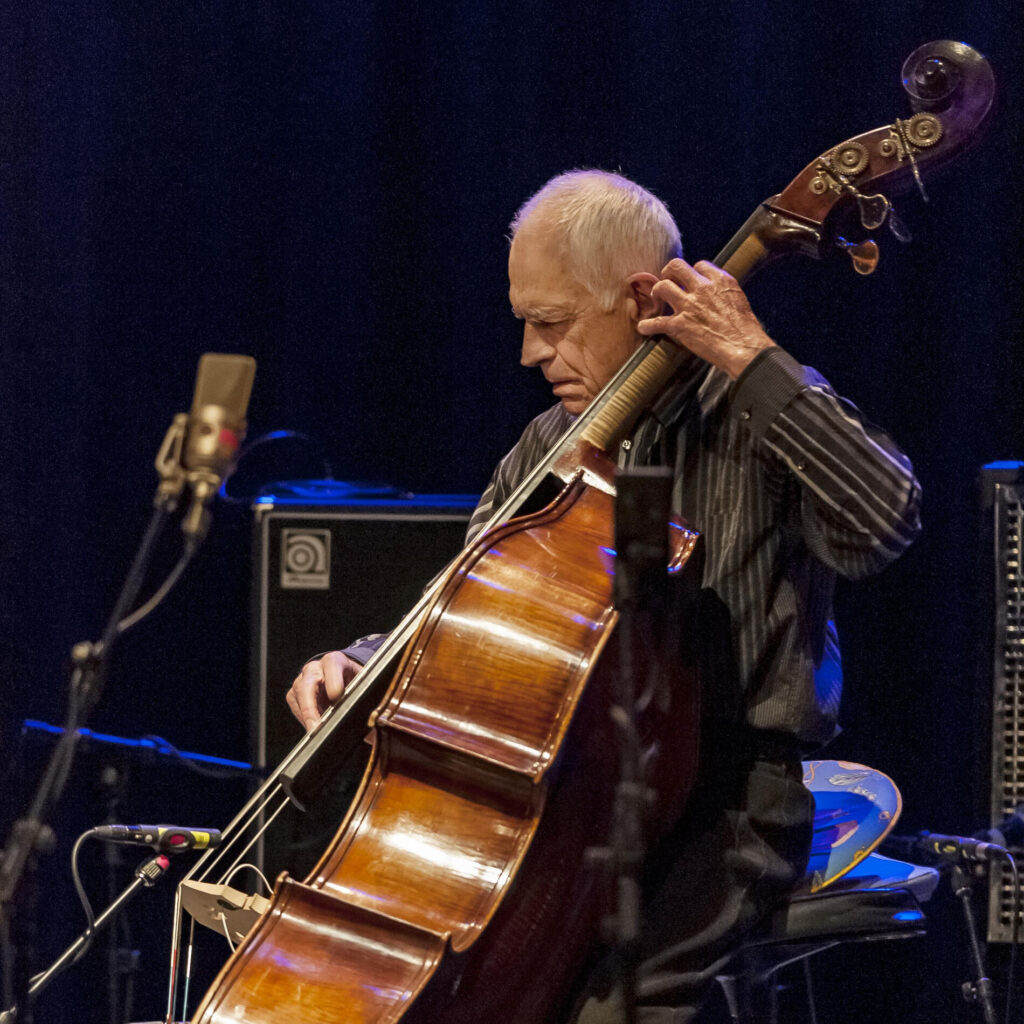

“Think Like the Waves”, released in 2006, was the culmination of Grdina’s studies with Peacock. Joined in the studio by the great Paul Motian, the group performed an entire set of Grdina’s original compositions, ten with electric guitar, four with oud. There’s a gradual movement from the chamber jazz of the first three guitar tunes towards the Middle-Eastern scales of the oud piece “Renunciation”.
The subtle interplay of West and East runs through subsequent years of Gordon Grdina’s musical output. His distinctive writing, and the effortless mastery of Peacock and Motian, marks this session as an early milestone in his career.
“Think Like The Waves” was recorded by Aya Takemura in 24/88, mixed in 2.0 and 5.0, and originally released on SACD. NativeDSD’s higher rate DSD remastering increases the sonic detail of this well-engineered album.
-
Ejdeha€18,99 – €30,99
Ejdeha
Fretless string players—violinists, cellists and bassists—practice tirelessly to produce correct Western intonation on their instruments in order to play in tune with pianists and orchestral string sections, or with woodwind and brass players. It is no small accomplishment that Gordon Grdina established a working ensemble of string players who have the skills to perform and improvise on Arabic- and Persian-centered music so effectively.
The project of integrating the oud into Western contemporary music has preoccupied Grdina for many years. Grdina described his goals to Songlines label owner Tony Reif: “I practice western-based ideas on the oud… because there have been techniques that needed to be developed in order to translate harmonic and melodic material to the instrument.”
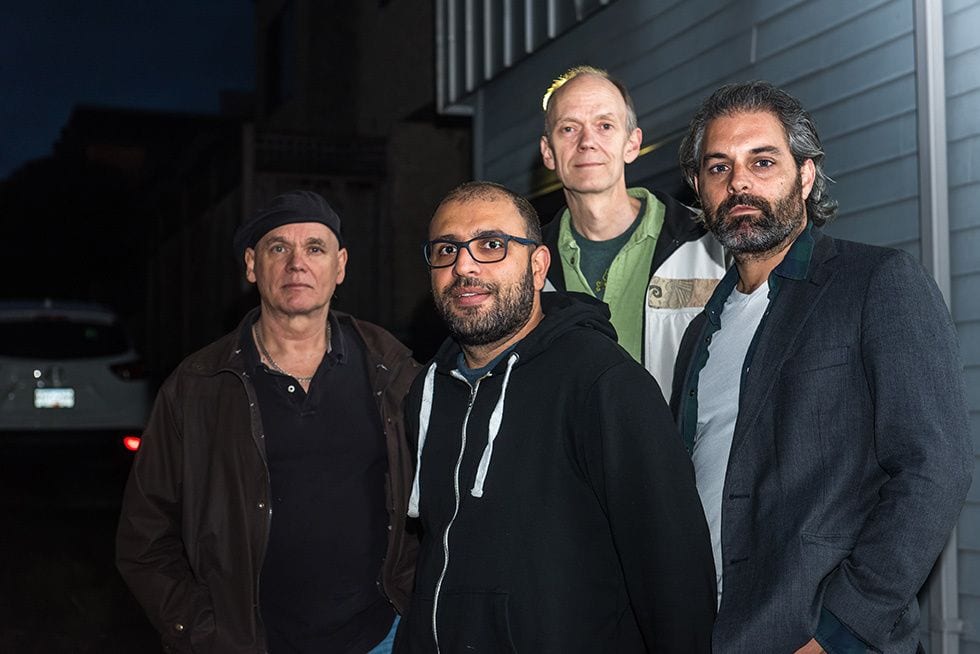
Bassist Mark Helias and cellist Hank Roberts have sterling credits and broad experience in modern jazz and new creative music. Roberts, a longtime collaborator of guitarist Bill Frisell, effortlessly blends into the intricate, sometimes delicate, other times high-risk arrangements. There are dark, brooding excursions propelled by middle eastern vamps as well as through-composed works (“Wayward”) that relate to the music on Grdina’s preceding Songlines album, “Inroads”.
Helias’ deep, rich bass, and the diverse sounds percussionist Hamin Honari elicits from the tombak, daf, and frame drum, are presented in vivid and warm recorded sound by engineer John Raham. Mastering of the original 24/96 release is by Vancouver’s most valuable player, pianist/composer/mastering engineer Chris Gestrin. As with all of the Songlines releases, NativeDSD’s higher rate versions shouldn’t be missed!
-
Inroads€18,99 – €30,99
Inroads
Inroads, a quartet album on which Grdina performs almost entirely on guitar, opens with a calm meditation by pianist Russ Lossing that focuses the listener’s attention for the challenging music to follow.
The appropriately titled “Not Sure” is a continuously unfolding suite that skillfully mixes quiet interludes and forceful, ‘out’ passages. A technically dazzling section in odd-meter rhythm unexpectedly drops into an introspective, contrapuntal duo between the saxophone and guitar, then shifts into a new section positioned over a repetitive single-note phrase played on the guitar’s low strings. As reeds player Oscar Noriega switches from saxophone to bass clarinet and Grdina changes from a clean electric guitar tone to distortion, the mood is assuredly unsure, and blurs the distinction between jazz and new classical music.
In the solo piano intro to “P.B.S.”, pianist Russ Lossing plays grand piano and Rhodes electric keyboard. Phrases transition from the acoustic to the electric instrument as smoothly as water flowing. A slow melody line played by saxophone and guitar establishes a harmonic foundation, but rather than solo over those changes, the musicians shift gears into a new section of contrapuntal lines that builds in density, volume and complexity. The rapidly-changing structure produces a sense of dislocation, and the track climaxes in a passage laden with aggressive guitar phrases and furious drum fills reminiscent of mid-1970s King Crimson.
“Apocalympics” builds on Moorish/Spanish themes and open space for drummer Satoshi Takeishi. It has the feel of a drum solo section of a live performance, enhanced by the excellent sound engineering. Electric keyboards and distorted guitar lines invoke early electric jazz-rock.
Grdina describes “Fragments”, the only track on which he plays the oud, as a clash of ideologies between the Eastern oud and the grand piano, epitome of Western music. Under the fingers of pianist Lossing, the East/West cultural divide disappears. Strummed piano strings and rapid arpeggio phrases perfectly complement the oud’s pizzicato attack. Oscar Noriega contributes low-register counter-melodies on the bass clarinet that build into a haunting unaccompanied solo, as the other instruments drop away.
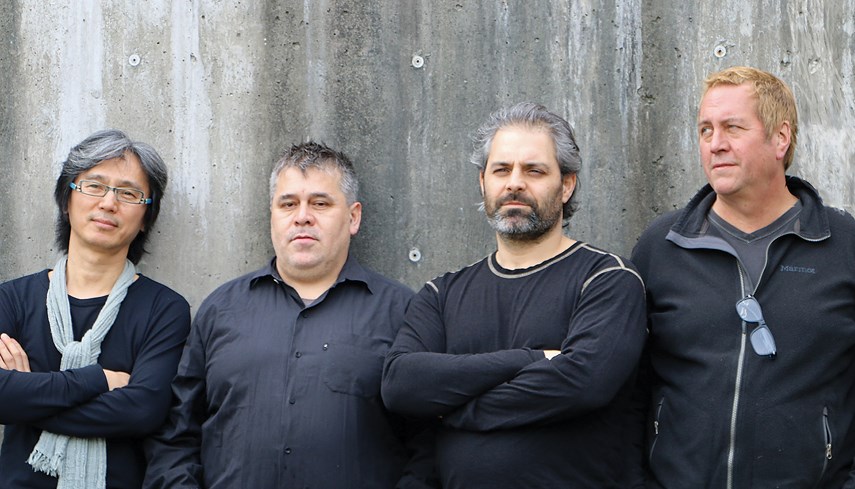
Grdina’s collaborators on Inroads are among the most respected players in the contemporary New York jazz scene. Pianist Russ Lossing has recorded several albums as a leader for the Swiss label HatOLOGY. Reeds player Oscar Noriega is a regular member of Tim Berne’s Snake Oil. He’s a masterful bass clarinetist who can project a beautiful sound over the wide range of the instrument. Satoshi Takeishi, an in-demand session drummer and composer of solo percussion albums, adeptly follows the shifting course of the musical stream, always playing the right accompaniment at the right time. It’s not every drummer who can shift modes between the free-time poetry of Paul Motian and the prog rock polyrhythms of Bill Bruford.
Engineer John Raham’s excellent 24/96 recording is elevated to spectacularly vivid sonic quality in NativeDSD’s higher rate versions.
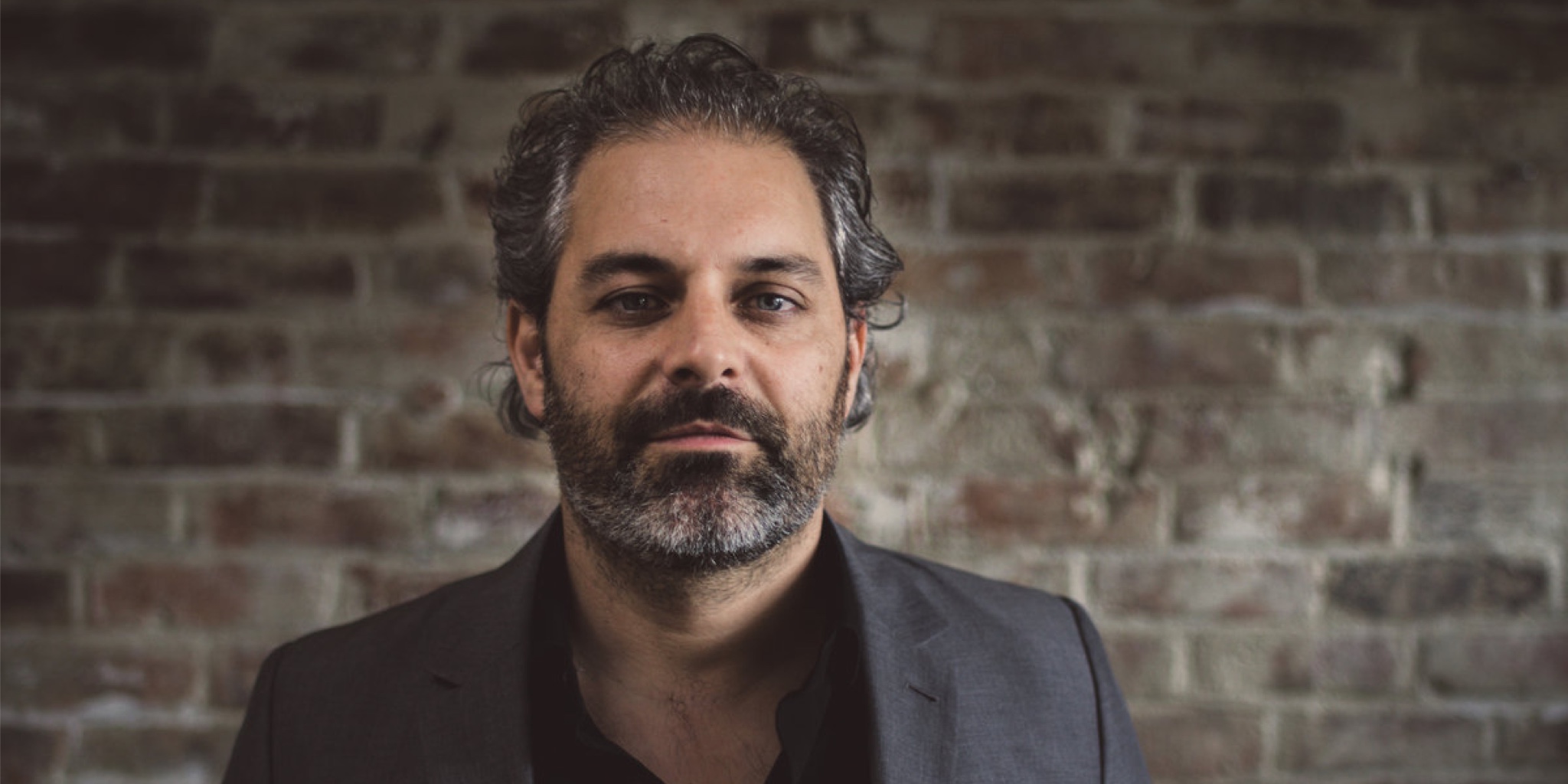
![Gordon Grdina Jazz Bundle - Vol. 1 [DSD Bundle]](https://media.cdnb.nativedsd.com/storage/nativedsd.com/wp-content/uploads/2024/09/23120056/Artboard-Copy-7.png)
